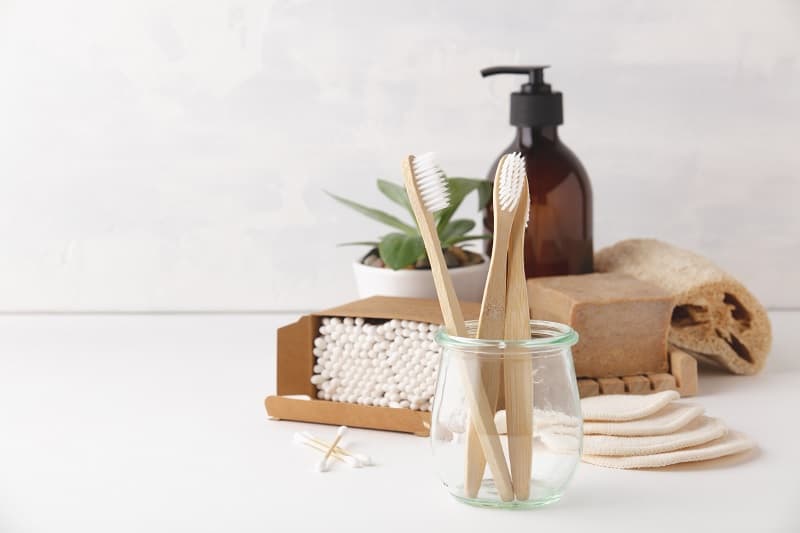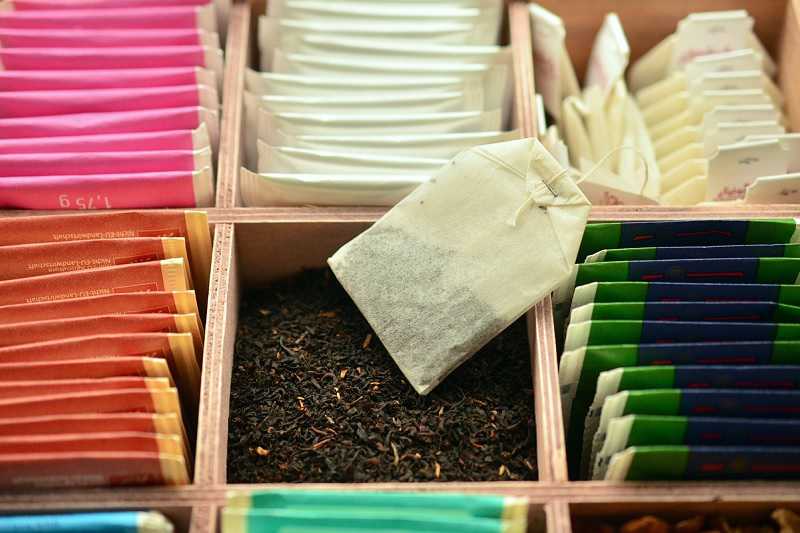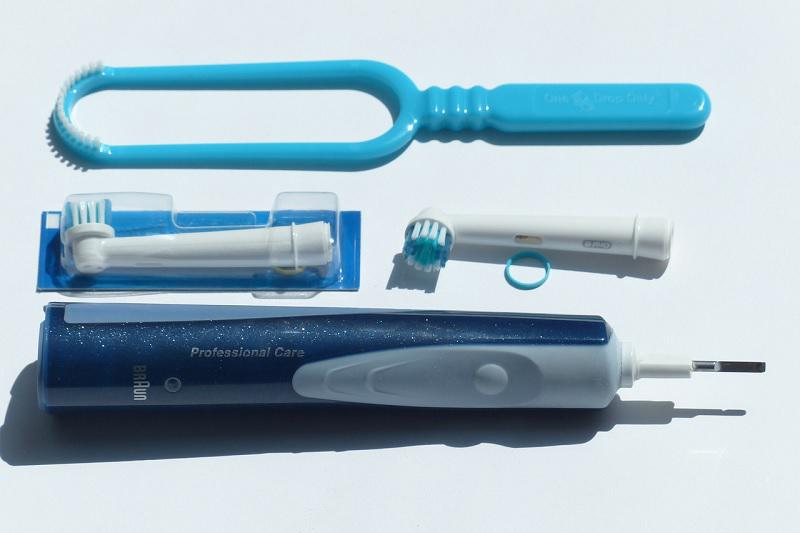With an estimated 3.6 million plastic toothbrushes used round the world each year, a growing number of eco-conscious individuals are turning to eco-friendly bamboo toothbrushes to minimise their impact on the planet.
And whilst it’s relatively easy to find toothbrushes with sustainable, biodegradable and compostable handles such as bamboo or castor bean oil, the same can’t be said of the bristles.
Either you opt for the 100% biodegradable, natural option of using boar’s bristles (pig hair) for toothbrush bristles (ok for meat eaters but certainly not for a vegan like me!) or you have to compromise by using nylon-4, which is a plastic billed as being biodegradable.
Billed as the greener, eco-friendly alternative to other plastics, nylon-4 has seen a surge in popularity over the past few years.
But how environmentally friendly is it really? Let’s take a look.
What Is Nylon-4?
Nylon-4 is a petroleum-based plastic (i.e. it’s made of fossil fuels) that is said to biodegrade within just a couple of months, instead of hanging around and polluting the land and oceans for years as other plastics do.
Is Nylon-4 Biodegradable?
According to several studies, nylon-4 does indeed break down when exposed to compost or activated sludge.
However, this doesn’t mean that we should all rush out and buy natural toothbrushes with nylon-4 bristles, thinking we’re doing our bit. What happens in the controlled conditions of the lab compared to real life are very different matters.
Even if a plastic appears to biodegrade, there are many factors which can influence whether this happens, including moisture levels, exposure to the air, exposure to bacteria in the soil and whether the material is exposed to fresh water or saltwater.
One study carried out in 2013 attempted to shed light on the matter by investigating whether nylon-4 would degrade in seawater in Tokyo Bay and the results seemed promising. Nylon-4 did indeed seem to be breaking down.
However, biodegradability is a complicated matter and there’s no proof that nylon-4 will break down in the conditions encountered within the time expected.
There’s also the possibility that this plastic isn’t decomposing but actually eroding into smaller pieces (microplastics) which could further add to the plastic burden facing our oceans.
Should We Buy Toothbrushes with Nylon-4 Bristles?
Sadly, there’s yet another factor to add to the confusion: many manufacturers claim to use nylon-4 or biodegradable plastics when they don’t.
This isn’t always their fault. The problem is that not many companies manufacture nylon-4 so it can be hard to get hold of it this material.
There are also many unscrupulous companies which claim to be supplying eco-toothbrush manufacturers with this more eco-friendly plastic when they’re not.
The only sure way to know if that toothbrush uses nylon-4 is to contact the manufacturer and ask.
Having said all of this, choosing an eco-friendly toothbrush is always better than buying one of the regular plastic types which will almost certainly end up damaging the environment.
If you use an electric toothbrush, you can buy recyclable toothbrush heads, but they’re still made from plastic unfortunately.
Even if we haven’t quite perfected our plastic-free, zero-waste toothbrush options, we’re still taking steps to creating a more sustainable future for ourselves and our kids.
Conclusion
Evidence so far seems to suggest that this plastic is biodegradable under lab conditions. However, more testing need to be carried out to see whether we really can label nylon-4 as 100% biodegradable.

Charlotte Witts is a writer and entrepreneur who wants to show you how easy it is to live a more conscious, zero-waste lifestyle. A confirmed yoga-addict, trail runner and ocean-lover, she currently lives in the Azores where she enjoys the simple pleasures in life.



